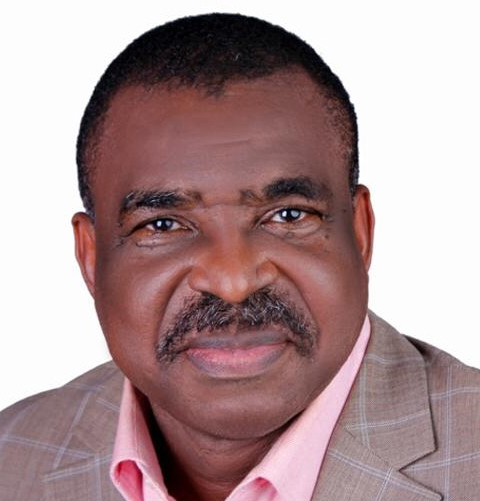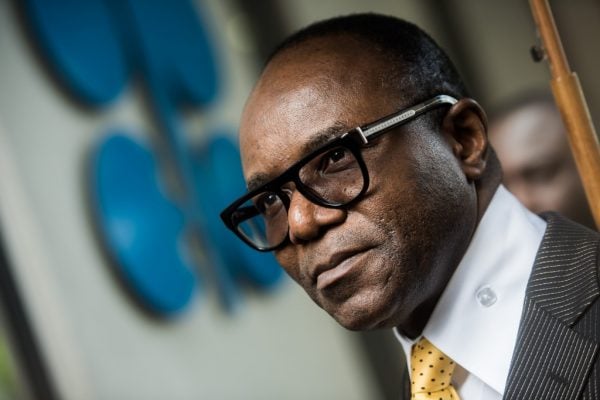Part of the legacy of Sanusi Lamido Sanusi, SLS as the governor of the Central Bank of Nigeria, CBN (2009-2014) is the introduction of Good Corporate Governance policy stipulating 10 years only as the maximum tenure for bank Managing Directors, MDs. Ostensibly, it was set up as a guarantee against self-perpetuation by bank Managing Directors, MDs, some of whom were also founders of banks after the CBN, (under the watch of Chukwuma Soludo as governor) opened up the banking industry for more private sector investments and consolidation in 2004.
Apart from the likes of Jim Ovia of Zenith Bank, and Tony Elumelu of UBA, who also doubled as majority owners of equity in the banks that they founded, and therefore returned to assume the chairmanship positions after hibernation for about five (5) years, the former Chief Executive Officer, CEO of IBTC, Atedo Peterside, started a private leasing company ANAP Jets and ex-Access bank MD/CEO, Aigboje Imoukhuede, became the chairman of WAPIC insurance — a subsidiary of Access Bank as well engage himself in the activities of some international academic and climate change-focused organizations. Femi Akinfenwa, former MD of Skye bank, also swept off by the Sanusi Lamido Sanusi’s Good Corporate Governance tsunami had migrated to the oil/ gas sector as the MD of Femi Otedola’s Forte Oil.
Unlike the others, UBA’s Philips Oduoza (who took over the reins of leadership from Elumelu) has set up Nova merchant bank as he completed his ten years tenure as MD. Likewise, for the immediate past GMD of Zenith Bank, Peter Amangbo (who succeeded the current CBN governor Godwin Emefiele) has also set up a bank-Globusbank and serves in the role of chairman, after retirement.
Emeka Emuwa had also recently exited Union Bank where he had served as MD since 2012. But he might be in hibernation as his whereabouts or what he is doing in or outside the financial services sector is currently not in the public domain.
Advertisement
The most recent retired MD of a bank is Nnamdi Okonkwo, formerly the CEO of Fidelity Bank. He is currently in hibernation too — taking a deserved break.
Would he also set up a bank as Oduoza and Amangbo have done, or would he make a foray into a related sector such as the Fintech business, as a former deputy CBN governor and former Wema bank MD, Tunde Lemo did by setting up Flutterwave, the wave-making money transfer platform? Recently, the services of Flutterwave got suspended by the CBN as part of the apex financial institutions strategy to cut off the source of funding to #ENDSars youth protesters last October? But it is back in business now as a unicorn — $1b by valuation — having raised series C capital of $170m.
GTBank’s MD/CEO, Segun Agbaje is due to go into retirement in a couple of months — June specifically — pre-retirement leave starts this month.
Advertisement
He is already a board member of PepsiCo.
Would he also remain in the financial services sector or would he pivot into the real sector — manufacturing and production of goods instead of just services that he was offering as a banker?
The first founder and Chief Executive Officer of a bank to hand over the reins of leadership to his co-founder, Tayo Aderinokun of blessed memory is Fola Adeola.
He made a clean break from the banking sector by not becoming the chairman. Rather, he went into other areas of endeavors.
Advertisement
He set up FATE foundation, philanthropy, and later joined politics by contesting as a vice presidential candidate with the pioneer EFCC chairman, Nuhu Ribadu as the presidential candidate of the defunct Action Congress of Nigeria, ACN.
Alex Otti, a former MD/CEO of Diamond Bank, retired from the role to contest for the governorship of his state, Abia. After two unsuccessful attempts at being the helmsman in government house Umuahia, Abia state, he is still pushing the ante on the political path with the hope that he might be third time lucky.
Also recently, Tokunbo Abiru, resigned as MD/CEO of Polarisbank to contest for the senatorial seat in Lagos. He is now a serving senator, perhaps with eyes on the governorship seat of Lagos state, upon the completion of the tour of duty of the current governor, Jide Sanwo-Olu.
Curiously, no ex-bank CEO has retired into the academia in Nigeria as Pat Utomi did when he retired from Volkswagen of Nigeria as acting MD/CEO into Pan African University where he is now a professor of practice. Not even Chukwuma Soludo, ex-CBN governor that appears to be intellectually inclined seems to have his eyes on the academia. Instead, he is coveting the governorship seat in Anambra state which had eluded him in the past when he contested to be the governor of a state as opposed to just being the governor of the CBN — also known as governor of money.
Advertisement
In the absence of intellectually inclined bankers, there is bound to be a lot of practical knowledge lost as those who are repositories are not sharing or passing them to the new generation in our higher institutions of learning.
I doubt if senior bankers (like the MDs and EDs) who are the centers of gravity in their respective banks, some of whom have helped grow their banks’ balance sheets phenomenally (Zenith Bank, GTBank, UBA, Access Bank) even have time to go and impart their knowledge on the future generation of bankers via lectures in the industry training platforms such as Financial Institutions Training Centre, FITC, how much spend time serving as part-time lecturers in universities, etc.
Advertisement
Unlike bankers, some major real sector players have transited from industry to diplomacy.
When he retired as chairman of Cadbury, Christopher Kolade was appointed to the post of Nigeria’s High Commissioner to the United Kingdom, UK.
Advertisement
Apart from Bank CEOs, some bank EDs such as Elias Akenzua exited Acess Bank to co-found Globusbank in 2019. Fidelis Anyabae, also a former Director in Citibank Nigeria pivoted into the world of manufacturing with a focus on the pharmaceuticals sector when he quit banking to set up Fidson pharmaceuticals.
Remarkably, before the recent phenomenon of ex-bank MDs setting up their own banks, and prior to the private sector investment into the banking sector leading to ownership of banks by individuals in Nigeria, most ex-bank MDs either got appointed into the CBN (because they were essentially public servants) or were really old and as such became fully retired.
Advertisement
That’s particularly so because all the banks at that time were owned by the government.
The late Green Nwankwo comes to mind as former MD of Union Bank. Ola Vincent, ex-CBN governor too, as well as Joseph Sanusi, one time FirstBank MD and later CBN governor, while not also forgetting victor Odozi who also served as deputy governor of the CBN.
Who knows if they too would have applied and obtained banking licenses if the financial services sector had been opened to participation by private investors in their time. That’s assuming they still had the energy to cope with the rigors associated with the ‘MDship’ of banks.
When he retired as MD of FirstBank, Oladele Olashore had set up a bank, Lead Merchant Bank which is now defunct. He had also established Olashore International School in Iloko-ljesha, Ekiti state.
Mrs Cecelia lbru, the first female managing director of a major private bank in Nigeria, Oceanic bank, has also set up Micheal lbru university in Agbaro-Otor, near Ughelli in Delta state.
Jim Ovia, the banking titan, and founder of the most profitable bank in Nigeria, which recently dolled out nearly N100m to shareholders have also ventured into the social investment arena in the education sector.
He started by providing a platform for the development of knowledge for our offsprings, (who are the proverbial leaders of tomorrow) via the founding of James Hope College in Agbor, Delta state.
He took his investment in education a few notches higher when he recently received a license to establish a university by the same name — James Hope — in Lagos.
In recent history, there are some bank directors, although not managing directors, who pivoted into the murky waters of politics when they got co-opted by political mentors.
The path from banking to politics was led by Abdulfatah Ahmed immediate past governor of Kwara state. He was drafted by an ex-governor of the same state and immediate past senate president, Bukola Saraki who was himself briefly an executive director in Societe General Bank, owned by his father, the late Olusola Saraki. Abdulfatah first joined politics from his executive director position in Societe General Bank to serve as finance commissioner during Saraki’s tenure as governor.
Thereafter, he inherited the gubernatorial office from his boss, Bukola Saraki who became a senator after being a two-term governor. Saraki too was a bank director with Societe Generale bank before he dabbled into politics as Special Assistant to former President Olusegun Obasanjo.
The next bank executive director to become governor of a state is Willie Obiano, who is the current governor of Anambra state.
He was an executive director in Fidelity bank before he was co-opted by Peter Obi, then governor of Anambra state and co-owner of Fidelity bank where Obiano was serving as ED.
Another ex-banker that became a governor of a state is Emmanuel Udom, the incumbent in Akwa Ibom state. He too was dragged into politics by the immediate past governor of the state, Godswill Akpabio. Udom was serving as ED in Zenithbank before he joined Akpabio’s cabinet as Secretary to State Government, SSG. Thereafter, he inherited the throne as the governor of Akwa Ibom state in 2015 from his political mentor, Akpabio.
Evidently, it was a trend for politicians to bring their bankers into political offices, especially as commissioners of finance and SSGs. This is reflected by the political trajectories of Abdulfatah Ahmed, Willie Obiano, and Udom Emmanuel amongst others.
But it is not fashionable anymore as the model has not worked out as perfectly as envisaged by the inventors of the political strategy.
Hence no banker appears to be in the pipeline of those that would become governor in the forthcoming governorship elections in 2023. The exception may be Tokunbo Abiru, who just transited from being the MD of Polaris bank to being a senator representing Lagos state in the National Assembly, NASS. Information in the grapevine indicates that the newly ‘minted’ senator is being prepped for the governorship of Lagos state after the very hard-working and new groundbreaking governor, Jide Sanwo-Olu’s time is done.
God willing, the highly driven and super performing governor, Sanwo -Olu would be allowed to complete his two terms, if he is spared the fate that befell the immediate past governor, Akinwunmi Ambode who could only serve one term at the behest of his godfather and kingmaker of Lagos state who withdrew his support when Ambode was seeking a second term. By the way, offering support to make a candidate win and withdrawing the assistance if the political office holder fails to meet the expectations of the promoter or godfather is legitimate in politics. A typical case in point is when Theodore Roosevelt the 26th president of the USA who had ‘crowned’ his protege, William Howard Taft the 27th president by making him succeed. But Roosevelt eventually withdrew his support when they fell out, resulting in president Taft’s failure to win a second term as president.
Optimistically, serving only one term hasn’t become the rule (Standard Operating Procedure, SOP) rather than the exception in Lagos state.
There are also a couple of ex-Zenith Bank and UBA alumnus that became governors in the northern states whose identities l can’t readily recall. Notably, there has been a steady flow of bankers into politics, including Isa Yuguda — a two-term governor of Bauchi state who had served as the MD of both Inland bank and NAL merchant bank (both banks are now defunct) at different points in time.
Why are politicians not entrusting or handing over the reins of state governments to their hand-picked acolytes in the banking sector anymore?
In my reckoning, the presumption of competence as prudent managers of financial resources, confidence in their banker’s ability to hide the financial misdeeds of their predecessors, capacity to prudently manage state funds, (an expectation underscored by their experience as bankers) and the anticipation of political naivety from the bankers whom their political godfathers assume would facilitate their continued control the politics of the states even after they have exited as governors. As it turned out, it was a miscalculation and therefore based on false hope which in almost all the cases collapsed like a pack of cards.
Although the bankers became governors overnight, they learned the political ropes very fast.
Hence in Anambra state, Willie Obiano allegedly ditched Peter Obi his mentor before the ink used by INEC in signing his victory at the polls could dry up.
Ditto for Emmanuel Udom in Akwa Ibom who also decoupled himself from the stranglehold of his former boss, Akpabio, who was allegedly still acting as if he was in his 3rd term with Udom as his surrogate. Ex-bank MD, Isa Yuguda also fell out with his bosom friend, the former governor of the state, Adamu Muazu from whom he took over the mantle of leadership.
There are those who may wonder how come ex-bank MDs would be so liquid to set up their own banks after leaving office?
Well, they earn hefty salaries, emoluments, and perks.
In addition to their salaries, which range from N80-N100m per annum, bank MDs are also rewarded with a certain percentage (let’s just say 10% ) of the Profit After Tax, PAT earned by the banks annually.
For instance, the MD of a bank that earned one hundred billion naira (N100,000,000,000) as PAT in one year would have earned 10% of N100,000,000,000 which would amount to N10,000,000,000.
If a bank MD earns that consistently in 10 years which is the CBN approved maximum tenure for bank MDs, he would have earned at least a hundred billion naira. That’s even without adding similar income in the periods that the MDs were EDs or DMDs.
The analysis above is just a hypothetical straight-line calculation for the purpose of putting things in perspective.
But one can imagine that a smart MD (more often than not, they are) would be re-investing such incomes consistently to boost his/her wealth.
So it’s not impossible that a handful of the ex-bank MDs can bring in equity of at least 10 billion naira out of the N100b required for a universal banking license and a good chunk of the N25b for a national bank and over half of the N15b for regional or merchant bank license.
Other strategic investors, whom the bank MDs must have identified in the course of their ‘MDship’ usually provide some of the additional equity contributions and the rest can be borrowed funds. Thus, most banks, like most business ventures, are set up with equity and debt with varying ratios of debt to equity.
Now, the Bank MDs whose retirement are on the horizon are Herbert Wigwe of Access Bank who entered the role in 2014. Going by CBN rule, he is due to retire in 2024, all things being equal.
Others are Mrs Oluwatoyin Shomefun of Unity bank who became MD of the bank in 2015.
The next is Kenedy Uzorka, the current MD of UBA who took over the mantle of leadership from Philips Oduoza in 2016. He has spent only a little over 5 years in the saddle and may have less than 5 years ahead of him.
But since unlike Wigwe, both Uzorka and the MD of Unity bank, Shomefun is not co-owners of the respective banks that they work for and their tenure is at the pleasure of the boards of the banks.
Would Herbert Wigwe at the expiration of his ten years tenure in 2024, enter the race for the governorship of his home state, Rivers to take over from Gov. Nyesom Wike and thus follow the path that the likes of Alex Otti are trying to tread; or pivot into the less stressful role of a real estate entrepreneur (he has been involved in Eko Atlantic City floated by the Charguories) or delve into oil/gas entrepreneurship like Tony Elumelu of UBA and HEIRS Holdings?
Time will tell!
Until Nnamdi Okonkwo exited Fidelity Bank and handed over to Nneka Onyeali-lkpe, Mrs Shomefun of Unity Bank was the only female member of the club of bank MDs in Nigeria after the ouster of Mrs Cecelia Ibru as MD of defunct Oceanic Bank.
Now they are two and possibly three if we add the acting MD of FCMB, Yemisi Edun, who has just taken over the MDship from Adam Nuhu that has stepped aside following an extramarital affair scandal that recently rocked the bank.
In conclusion, when bank MDs are compelled to retire in compliance with CBN extant rules, (oftentimes before the statutory age of retirement of the MDs which is 65 years in the public sector) more often than not, they still have boundless energy, hence they are always reinventing themselves in the financial services sector or veering off into other sectors of the economy.
However, it’s not all former bank MDs that in peace. Former major players in the banking sector such as Francis Atuche, ex MD of Bank PHB that have been engaged in complex legal entanglements with the EFCC since his bank was shut down so he has been unable to exhale. So also has Okey Nwosu, ex MD of defunct Finbank been under the water.
The bottom line is that whatever endeavors they engage in after retirement from banking, ex-bankers ultimately contribute to the Gross Domestic Product, GDP of our country. They do so by creating employment and boosting production via economic activities in their various ventures.
That is better than just being idle and unproductive citizens with their hefty earnings from their time in banking being neutralized in bank vaults or being spent in holiday destinations like the Bahamas, Barbados, Acapulco, Monaco (south of France) or Marbella, (south of Spain) sipping umbrella drinks like cocktails or mojitos.
Were the bankers to apply their deep pockets in the frolicking referenced above, the growth of our economy that needs funds to buy it, would be, by omission or commission hindered or hampered. That’s what happens when hard-earned money is exported to foreign countries where the deep-pocketed retired bankers would be holidaying if they didn’t choose to invest in the local economy. In the event that such a situation arises, the wealth generated from our economy wouldn’t regenerate optimally to boost the economy as it should. But to the credit of the retired, (but not tired bank MDs) they are currently engaging in business ventures locally and ruling the roost in both the financial services sector and the manufacturing industry, including oil/gas.
Since bankers are often awesome financial strategists, they appear to have succeeded in crowding out bank owners that are not professional bankers. These include Aliko Dangote, the richest man in Africa, and owner of the Dangote behemoth, as well as the owner of Capital Trust bank that folded up when it was subjected to a stress test by CBN in compliance with our new policy.
The same applies to Mike Adenuga, a business colossus who also founded two banks(commercial and merchant)Equatorial Trust Bank, and DEVCOM merchant. The telecom and oil/gas tzar had to also wind up his banks after Sanusi Lamido Sanusi’s reforms in the banking sectors stifled them.
The only area of the Nigerian economy that retired bank MDs are yet to successfully challenge the current leaders in the sector that are already entrenched, such as Mike Adenuga of GLO, is the telecommunications industry.
The godfather of modern-day banking in Nigeria, Jim Ovia made a foray into the sector with VISA phone which operated a CDMA system and it got flunked simply because it is not GSM that is most suitable for our market. So he retreated.
But as the saying goes, he who fights and runs away lives to fight another day. Nothing precludes VISA phone from being relaunched in the future as GSM when NCC opens the window for another licensing bid. VISA phones can even make an acquisition of an existing GSM license if need be. Take 9mobile that looks likes it is severely starved of funding, for instance. It is clearly a takeover candidate.
Who knows, as the song by the English songwriter and drummer Phil Collins reminds us, there will be “another day in paradise.”
Before that day in paradise, at least by now, we all know which life endeavors most ex-Bank MDs in Nigeria have been going into after retirement from active banking.
Magnus Onyibe, an entrepreneur, public policy analyst, author, development strategist, alumnus of Fletcher School of Law and Diplomacy, Tufts University, Massachusetts, USA and a former commissioner in Delta state government, sent this piece from Lagos.
1 comments








Well written piece!